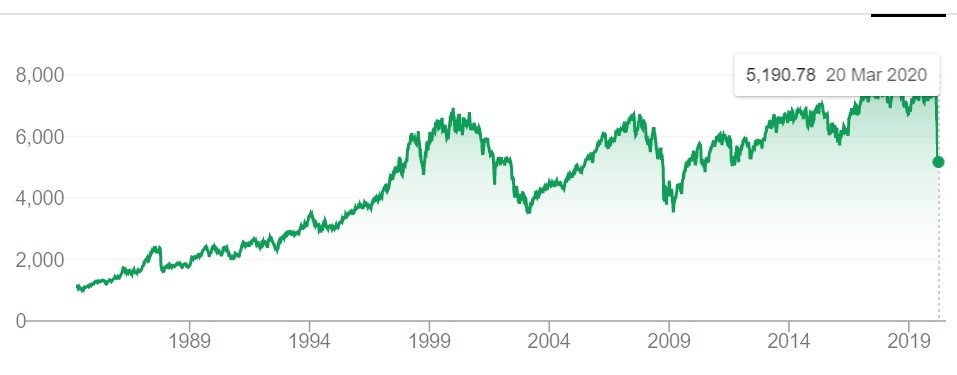Andrew Dines, a chartered financial planner at AAB Wealth, explains why the impact of coronavirus on the stock market need not alter your long-term goals.
With the UK in lockdown and pressure on the NHS mounting, Covid-19 is set to exert an enormous influence on our lives over the coming months.
At the time of writing, the number of confirmed cases worldwide stands at more than two million and there have been at least 130,000 reported deaths, including almost 300 in Scotland. The virus is affecting every corner of the globe and world stock markets continue to feel its impact.
Between March 2 and March 30, 2020, the value of the FTSE 100 fell by around 17 per cent. Other global stock markets have seen similar falls.
But what does short-term market volatility mean for your long-term goals?
Keep calm…
Investment is a long-term strategy. International trade wars, the Brexit vote, and national elections have all had a short-term impact – the current threat of coronavirus is no different.
Keeping your head when the market dips, avoiding emotional knee-jerk reactions, and drowning out the noise is crucial. If your long-term goals haven’t changed, then your financial plan and investment strategies do not need to either.
Over the last 25 years, the FTSE 100 has experienced many downturns. And yet online trading and investments provider, IG, confirms that the compound annual return over that time was 6.4 per cent with dividends reinvested, a total return of 375 per cent.
Looking at the last 35 years, the trend of the index is upwards, albeit with the occasional period of short-term volatility.
FTSE 100 Index since 1984
 …and carry on
…and carry on
Markets are efficient. At AAB Wealth, our investments are evidence-based, highly diversified and intended as strategies for the long term. We also believe in keeping costs low.
A key role of any adviser is to help you maintain discipline, avoiding snap decisions when times are difficult. We can help you avoid the behavioural traps investors often fall into and we’ll do that by reminding you of three things:
1. Market downturns tend to be short, sharp shocks
In the context of long-term investment even a sustained period of unrest, such as the 2008 financial crisis, becomes a momentary trough if we look at market performance over the longer term.
2. Learn to ignore the noise
We are currently in a period of great uncertainty and its short-term effect on the stock market has been clear.
When we talk about ‘noise’ we generally refer to local or national politics, or the future of the UK high street. This time, we’re discussing a genuine threat to life, but the stock market will react in the same way.
Over the next few months, our expert knowledge of the markets will help our clients drown out the noise, keeping them on track towards their long-term goals.
3. Have confidence and wait it out
In difficult times you might feel rushed into making snap decisions. It is important to remember that a low-cost, diversified portfolio is designed to ride short-term volatility, however unprecedented its cause.
Past performance is no guarantee of future success, but the evidence suggests that over the long term the markets offer positive returns. A good adviser will be there with you for the whole of that journey, long after the current crisis is over.
